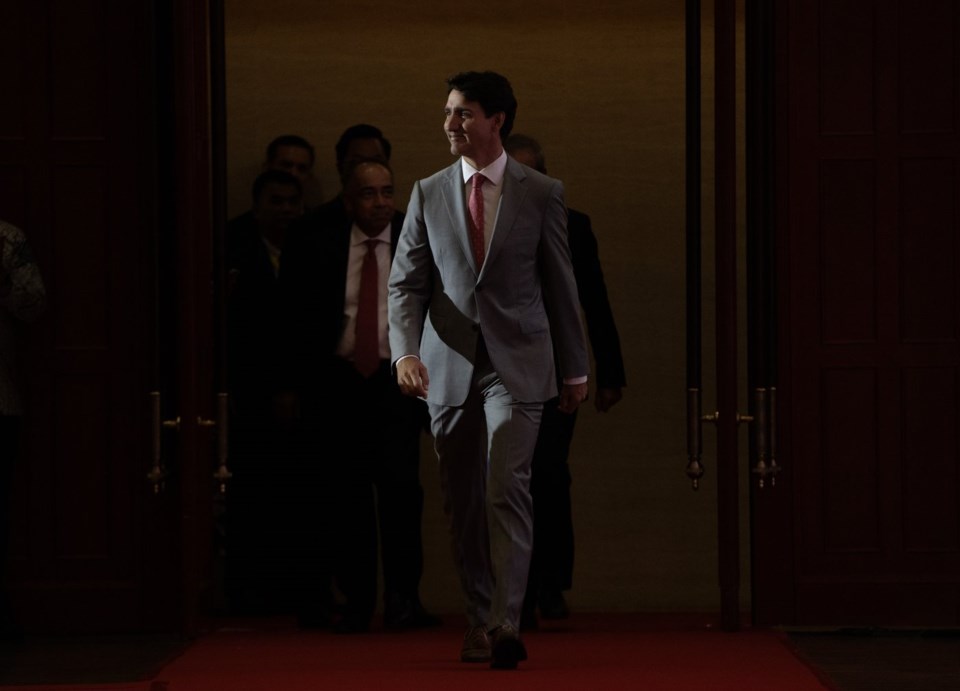VIENTIANE — Canada needs to keep up its presence in Southeast Asia if it wants to benefit from the region's economic boom, Prime Minister Justin Trudeau said on Friday as he wrapped up his visit to Laos.
Trudeau participated in the Association of Southeast Asian Nations Summit this week, marking the third time he's attended the annual meeting.
The prime minister said pursuing bonds with ASEAN members is not about political ideology or leaving a government footprint, but rather it's about acknowledging the economic opportunities in the region.
But to benefit from what Southeast Asia has to offer, Trudeau said Canadians need to make their presence felt in the region.
"That's really a big piece of the challenge, making sure that we are showing up," Trudeau said in a news conference on Friday.
"Showing up as leader, yes, but more importantly, showing up as businesses on trade missions, building those connections, making the investments in more maritime security presence and defence presence, making more investments in upgrading embassies and opening trade offices."
Trudeau announced during the visit that Canada is upgrading its diplomatic missions in Vientiane, Laos, and Phnom Penh, Cambodia to full embassies.
He also announced a $128-million package of funding at the summit, with the majority of the money going toward environmental protection and combating climate change.
The visit to Laos comes as Canada works toward a free-trade deal with the 10-nation bloc and a separate deal with Indonesia, which both countries are aiming to sign by the end of the year.
ASEAN countries together represented Canada's fourth-largest trading partner last year, and trade with the region has nearly doubled since 2015.
The visit also builds on the Liberal government's Indo-Pacific strategy, which set out a road map to strengthen military and economic relationships in the region and counterbalance the influence of China.
Canada's efforts are part of a larger Western push for stronger economic and political relationships with southeast Asian countries, largely to reduce reliance on Chinese goods.
Countries in the region have their own concerns related to China, including ongoing disputes over the South China Sea.
The ASEAN summit followed a series of violent confrontations at sea between China and ASEAN members Philippines and Vietnam, which have fuelled concerns that China's assertive actions could spiral into a full-scale conflict.
U.S. Secretary of State Antony Blinken told southeast Asian leaders at the summit on Friday that the U.S. is concerned about China's "increasingly dangerous and unlawful" activities, and pledged the U.S. will continue to uphold freedom of navigation in the vital sea trade route.
When asked about the escalation, Trudeau said Canada wants to see international law respected.
"These are things that we abide by — and not just stand by on paper, but we demonstrate that every time we send a Coast Guard vessel or a military (Canadian Armed Forces) ship through the South China Sea. It is international waters and needs to be open for all navigation," he said.
This report by The Canadian Press was first published Oct. 11, 2024.
— With files from The Associated Press.
Nojoud Al Mallees, The Canadian Press


